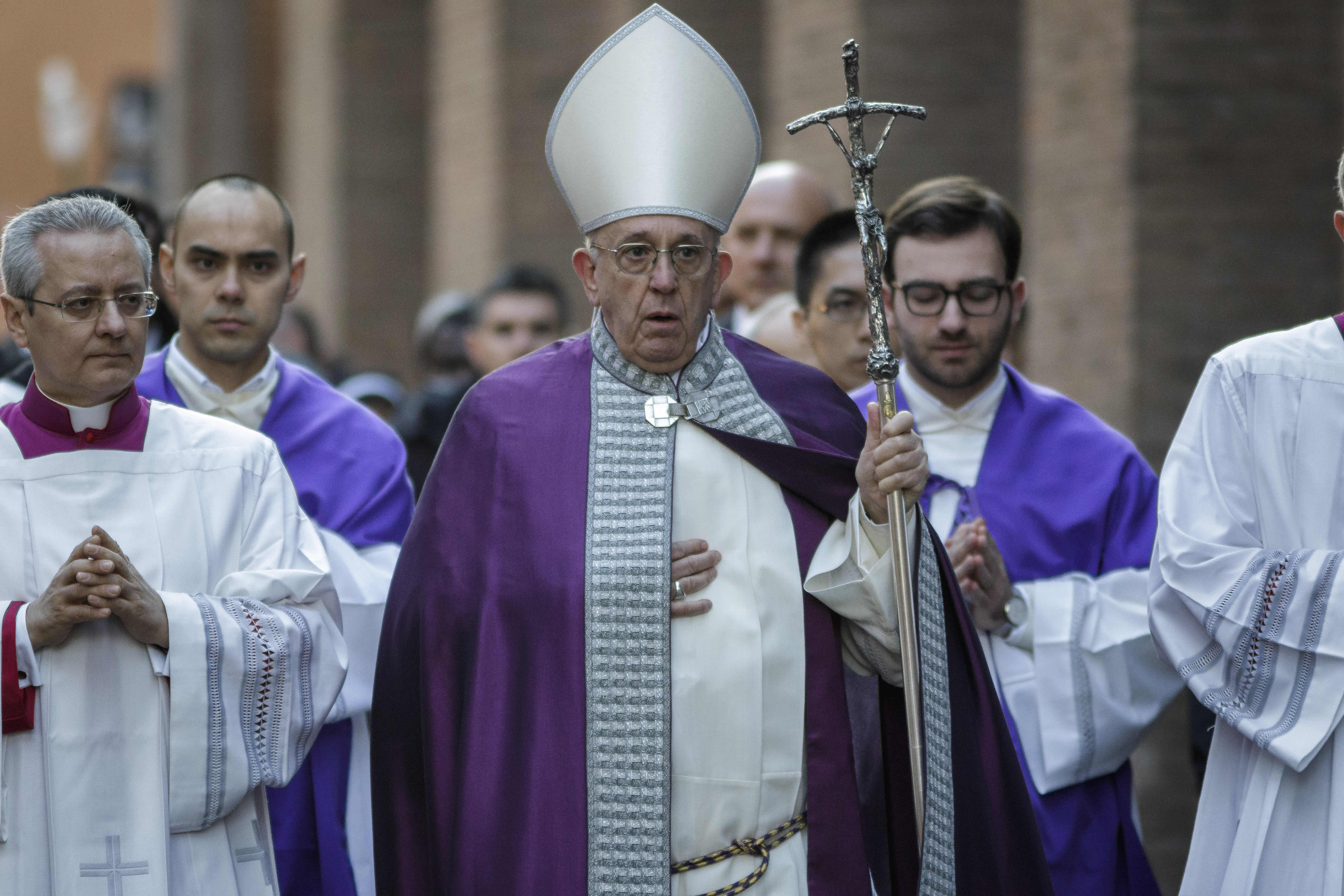Pope Francis has revealed that he has regular meetings with victims of sexual abuse, and has emphasised that the Church must listen to their stories.
“What they have been through is so hard, they are destroyed,” he said during discussions with a group of Jesuits in Chile and Peru last month released on Thursday. “On Fridays – sometimes this is known and sometimes it is not known – I usually meet with some of them.”
Greg Burke, the Director of the Holy See Press Office, later confirmed in a statement that Francis meets with survivors “several times a month”, either with individuals or in groups. These meetings, he explains, are held in the “strictest confidence”.
The news about the Pope’s meeting with victims comes after questions were raised about his handling of the case of Bishop Juan Barros, a Chilean prelate accused of ignoring the abusive behaviour of a priest. While the Pope repeatedly said no evidence had been presented to him about Barros’ alleged cover-up, the Associated Press reported that a letter detailing the claims was sent to him.
The Barros case has raised some hard questions about the Pope's leadership style.
At one level, the Latin American pontiff’s approach has thrilled and inspired millions with his persona of an informal, non-clerical, accessible Pope who, at the drop of a hat, is willing to baptise a sick child or marry a couple on board a plane.
Instinctively sceptical of systems and structures, this Bishop of Rome believes the gold standard for a priest is his closeness to his flock rather than his efficiency as a church bureaucrat. It is a pastoral populism that has particularly appealed outside traditional Vatican circles.
But if this has been a winning strategy up to now, it has come unstuck in his response to the clerical sexual abuse scandal, something which he described in South America as “the greatest desolation the Church is undergoing".
A big problem for Francis is that a substantial dismantling of the traditional bureaucratic apparatus around the papal office has left him personally responsible for what happens on his watch. That’s great when things are going well. But when something goes wrong, the damage is harder to control. The Pope has become his own fall guy.
By comparison, when Benedict XVI was accused of mishandling the case of an abusive priest while Archbishop of Munich, the Vatican was quick to state that the vicar-general at the time had taken full responsibility.
In Francis’ case, the Vatican has made no official response to what happened to the Barros letter, although the news today of his meetings with survivors has been well-timed. And an investigation by anti-abuse expert Archbishop Charles Scicluna is underway. Given that the Pope has more than 50 items placed into his hand every day there is a high likelihood he never read it, although others say he is aware of the claims made by abuse victims against Barros.
Fr Hans Zollner, a child protection expert based in Rome, told The Tablet there is no way of knowing for sure but said he is “quite certain” that two letters he once gave the Pope were not opened. Like most safeguarding experts, Fr Zollner believes the Church must be more transparent in its handling of abuse cases. That requires its leaders to say what they knew, who told them and when. It also means careful record keeping and a clear system for the investigation of allegations and complaints.
No one is arguing that the Pope should read every letter that is placed in his hand. But after the Barros case some are saying he must have a tighter system of management around him. When he took office it was with a mandate to reform the Vatican, an institution that had just suffered a damaging leaks scandal and was losing the confidence of the Church globally. He’s tried to reform the Roman Curia by slimming it down and by pushing power away from Rome and back to the local churches. Now he’s finding that when comes to the handling of the clerical sexual abuse scandal, some strong central governance is needed. This is not exactly part of the script for the Pope who has promised to decentralise.
Nevertheless, taking a firm, procedures-based hand of the clerical abuse scandal in a way that runs counter to Francis’ anti-bureaucratic instincts is something that victims want. It could also help protect the papacy.
Pic: February 14, 2018 – Pope Francis leads the Ash Wednesday procession and mass at Santa Sabina Church. Credit: Giuseppe Ciccia/Pacific Press via ZUMA Wire.



 Loading ...
Loading ...